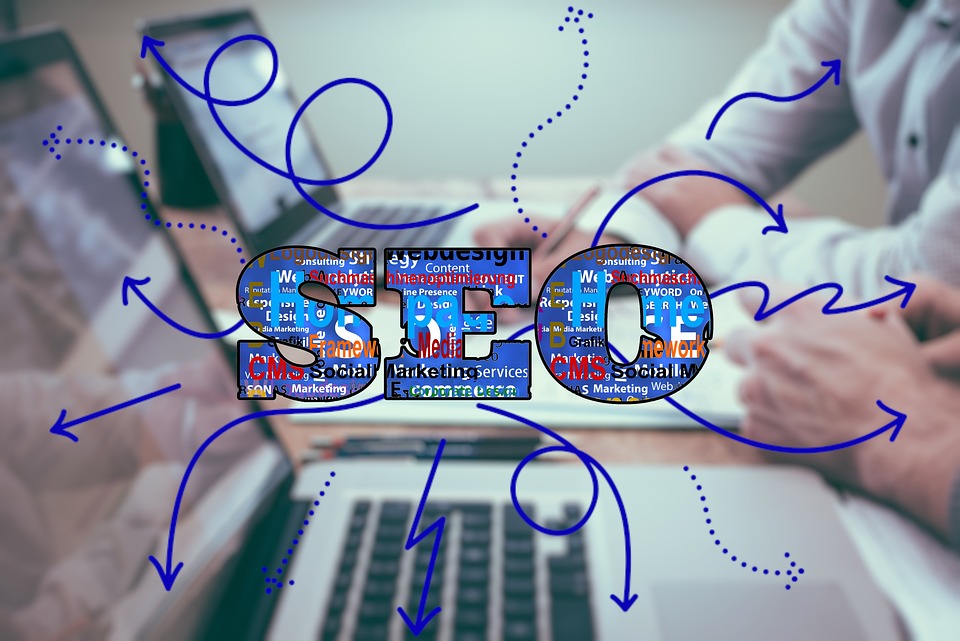SEO for E-commerce: How to Optimize Your Online Store for Search Engines and Drive More Sales
In today’s digital landscape, having an online presence is crucial for e-commerce businesses. With millions of consumers turning to the internet to find products and services, it’s essential to ensure your online store is optimized for search engines to increase visibility, drive traffic, and ultimately, boost sales. In this article, we’ll explore the key strategies for SEO optimization in e-commerce and provide actionable tips to help you optimize your online store for search engines and drive more sales.
Why SEO Matters for E-commerce
Search Engine Optimization (SEO) is the process of improving the visibility and ranking of your website in search engine results pages (SERPs) through various techniques. For e-commerce businesses, SEO is crucial because it helps potential customers find your products and services when they search for them online. Here are some reasons why SEO matters for e-commerce:
- Increased Visibility: SEO helps your online store appear in search engine results, making it more visible to potential customers who are actively searching for products like yours.
- Targeted Traffic: By optimizing for specific keywords, you can attract targeted traffic that is more likely to convert into customers.
- Cost-Effective: SEO is a cost-effective marketing strategy that doesn’t require a large budget to generate leads and drive sales.
- Competitive Advantage: By optimizing your website for search engines, you can gain a competitive advantage over your competitors who may not be optimizing for SEO.
Key Strategies for SEO Optimization in E-commerce
To optimize your e-commerce website for search engines, follow these key strategies:
- Keyword Research: Conduct thorough keyword research to identify relevant and high-volume keywords that your target audience is searching for.
- Optimize Product Pages: Ensure each product page is optimized with relevant keywords, descriptions, and meta tags to improve visibility in search engine results.
- Categorize and Organize Products: Use a clear and logical categorization system to help search engines understand your product structure and relevance.
- Use High-Quality Images: Use high-quality images that are optimized for search engines and include alt tags and descriptions to improve image search visibility.
- Mobile-Friendliness: Ensure your website is mobile-friendly and responsive, as this is now a key ranking factor for search engines.
- Page Speed: Optimize your website’s page speed, as slow loading times can negatively impact search engine rankings.
- Internal Linking: Use internal linking to help search engines understand your website’s structure and relevance.
- Content Marketing: Create high-quality, relevant, and informative content to attract and engage with your target audience.
- Local SEO: If you have a physical store or serve a specific geographic area, optimize your website for local SEO to attract local customers.
- Track and Analyze: Use analytics tools to track your website’s performance and analyze data to inform future SEO strategies.
Actionable Tips for E-commerce SEO
Here are some actionable tips to help you optimize your e-commerce website for search engines:
- Use keyword-rich product titles: Use relevant keywords in your product titles to improve visibility in search engine results.
- Write detailed product descriptions: Write detailed and informative product descriptions to attract and engage with your target audience.
- Use alt tags and descriptions: Use alt tags and descriptions for product images to improve image search visibility.
- Optimize product categories: Use descriptive and keyword-rich category names to help search engines understand your product structure.
- Use meta tags: Use meta tags, such as title tags and meta descriptions, to provide search engines with a summary of your product pages.
- Create a blog: Create a blog to attract and engage with your target audience and improve your website’s authority and relevance.
- Use social media: Use social media to promote your products and drive traffic to your website.
- Monitor and adjust: Monitor your website’s performance and adjust your SEO strategies accordingly to optimize your results.
Conclusion
SEO is a crucial component of any e-commerce marketing strategy. By optimizing your online store for search engines, you can increase visibility, drive targeted traffic, and ultimately, boost sales. By following the key strategies and actionable tips outlined in this article, you can improve your website’s search engine rankings and drive more sales for your e-commerce business. Remember to stay up-to-date with the latest SEO trends and best practices to ensure your website remains competitive and optimized for search engines.
#SEO #Ecommerce #Optimize #Online #Store #Search #Engines #Drive #Sales





Casino Princess online heißt Spieler mit einem luxuriösen Erlebnis willkommen,
das sowohl für Desktop- als auch für mobiles Spielen optimiert ist.
Die neuen Spieler können exklusive Angebote erhalten, während die bestehenden Benutzer
von Cashback-Angeboten und Aktionen profitieren können. Hier können Spieler sogar Hunderte von Spielen erkunden, das Gameplay reibungslos
gestalten und großzügige Boni freischalten, die durch Lizenzierung und
Verschlüsselung abgesichert sind. Das Princess Casino bietet ein beeindruckendes Online-Erlebnis voller Premium-Slots, aufregender Belohnungen und Live-Dealer-Spielen.
Besonders überzeugt haben mich die schnellen Ein- und Auszahlungen sowie
die transparente Abwicklung. Ja, neben Casino-Spielen bietet Princess Casino eine eigene Sektion für Sportwetten mit zahlreichen Märkten. Ja, Spieler sammeln Treuepunkte, die gegen Boni oder Freispiele eingetauscht werden können. Wie sicher sind
meine Daten bei Princess Casino? Das Princess Casino bietet eine
große Vielfalt an Spielen, die verschiedene Spielertypen ansprechen.
Ich habe meine Gewinne stets ohne Komplikationen erhalten,
was für mich entscheidend ist. Jedes Spiel überzeugt durch Qualität und Spielspaß.
Die Auswahl an Spielen bei Princess Casino ist beeindruckend und bietet für jeden Geschmack etwas.
Princess Casino überzeugt mit attraktiven Bonusangeboten, die mein Spielerlebnis bereichern. Es
ist eine großartige Gelegenheit, das Casino auszuprobieren und Ihre Favoritenspiele mit erhöhten Chancen zu genießen.
References:
https://online-spielhallen.de/alles-uber-vegaz-casino-freispiele-ihr-umfassender-leitfaden/
The specific pokies game changes weekly, giving participants the chance to explore and enjoy
diverse popular titles. The second deposit rewards participants with a 50% match bonus of up to AU$300, while the third deposit presents another 50% bonus up to AU$400.
On the first deposit, participants receive a 100% match bonus of up to AU$200, effectively doubling their initial funds.
Our advanced encryption technology protects every piece of personal information and financial transaction, ensuring that your data remains completely
secure at all times. Baccarat enthusiasts will find both traditional punto
banco and modern variations that add exciting twists to this timeless classic.
Rich Lady Deluxe transports you to a world of luxury and sophistication, where every spin brings the possibility of discovering hidden treasures and unlocking premium bonus features.
The website presents a total of 13 payment methods, which make it possible to deposit payments into the main account without delay.
You need to provide the casino with personal information and
your account will be created instantly. Casino Mate belongs
to Vegas Partner Lounge, a well-known company in the gambling niche.
This is an active casino so we hope you find this review helpful.
References:
https://blackcoin.co/best-live-dealer-online-casinos-in-australia/
The live casino is accessible 24/7 and features professional dealers,
high-definition streaming, and interactive chat functions, allowing for a truly immersive atmosphere.
Whether you prefer the fast pace of blackjack, the suspense of roulette,
or the strategic depth of poker, Leon Casino’s table game selection delivers
quality and choice for every type of player. The games are powered by reputable software providers, ensuring smooth gameplay and fair
outcomes. Players can also enjoy video poker, craps, and other popular card games, providing a well-rounded experience beyond just pokies.
All bonuses are available in Australian dollars (AUD),
making it easy for local players to participate.
Yggdrasil is known for its creative themes and high volatility slots,
and Red Tiger offers popular jackpot slots with exciting bonus mechanics.
Leon Casino collaborates with over 100 renowned game providers,
ensuring a diverse and high-quality gaming library.
Whether you’re playing on desktop or mobile, the interface is intuitive
and responsive, ensuring smooth gameplay.
References:
https://blackcoin.co/skycrown-online-casino-au-pokies-payid-neosurf-fast-payouts/
online casinos that accept paypal
References:
jobsrific.com
casino sites that accept paypal
References:
http://www.vytega.com